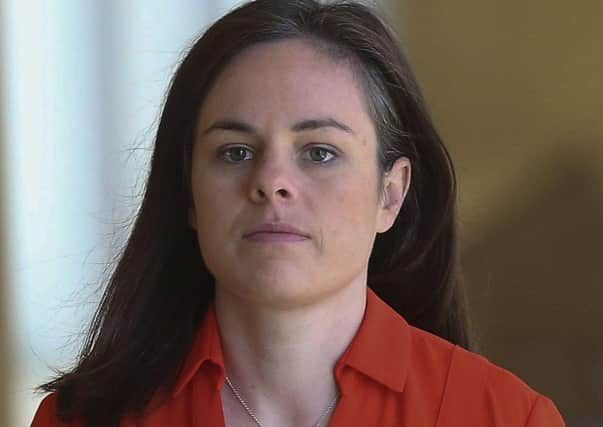Scotland needs ideas, not grievances, to save jobs – Brian Wilson


Sometimes it takes something very local – like the permanent closure of a much-loved restaurant – to bring home a wider truth.
That has been the reality on Lewis, where I live. For 20 years, a restaurant called Digby Chick has provided exceptional service. The announcement that it will not re-open drew a thousand expressions of appreciation and regret.
Advertisement
Hide AdAdvertisement
Hide AdIn every city, town and village there are similar awakenings to the fact our communities are going to look very different with boarded-up premises featuring prominently in that landscape.
Need it be so, or are there practical measures which could pre-empt such a depressing prospect? Could this time of extreme difficulty also create opportunity, to break down bureaucratic barriers, do things differently, think the unthinkable?
For example, many of Scotland’s town centres were in grim condition long before the pandemic without much concerted effort to do anything about it. The aftermath of what we are going through will make things worse, so is it good enough to carry on as before?
All relevant powers are devolved – to replace business rates with some formula related to turnover; to take possession of long-term empty properties; to encourage small start-ups to move in; to loosen planning restrictions... Why not emergency legislation to embrace all of that?
Forget the political play-acting. There’s a lot of money around and the question is how effectively it is going to be used. I am certain many of the challenges can best be met at local levels, through innovation and flexibility.
Everything need not be a national scheme. Local authorities know their communities and the micro measures which would be most effective. Giving them the powers and resources to act would be no more than common sense, and the sooner the better. There are macro issues which only governments can address and they should be working constructively with each other to ensure every opportunity is taken to safeguard businesses and jobs. That is plenty to keep them busy.
But short-term realities which every part of Scotland faces will need creative responses. To take another example, instead of being derided, the Chancellor’s Kickstart programme can be adapted to improve the environment of all our communities as well as providing work. Again, councils should have a key role.
This is a time for positive thinking... flexibility... imagination... a sense of urgency. Recovery plans need not be hatched in Edinburgh by advisory boards stuffed with bankers, Dames and professors. For rapid results on the front line, trust in localism.
Advertisement
Hide AdAdvertisement
Hide AdIt is easy to pick holes in Rishi Sunak’s statement and it is the job of opposition politicians to do just that. However, it is downright irresponsible to misrepresent the whole package in order to score a political point.
Mr Sunak had scarcely sat down before Holyrood’s Finance Secretary, Kate Forbes, tweeted that it would mean “only £21 million for the Scottish Government”. Even that statement is probably untrue but what mattered to anyone not focused on grievance and division is that the benefit to Scotland of this particular package will be at least £1 billion.
By pretending otherwise, Ms Forbes demeaned herself. Does it matter to desperate business owners, workers facing redundancy or home-owners with high electricity bills that most of the money will reach them through UK-wide schemes rather than as consequentials from the Barnet formula? I doubt it. Earlier in the week, the same formula deposited £97 million into Scottish Government coffers from the creative industries package. A month from now, will there be a list showing how that money has been distributed, and if not, why not? Transparency is almost as important as urgency.
There will be plenty time to discuss whether the scale of support from which all parts of the UK are benefiting would be available to a separate Scotland. But that time is not now. People are living in fear of unemployment. Good businesses are going under. For heaven’s sake, just get on with using the money to best effect – and start coming up with ideas rather than searching for the half-empty glass.
A message from the Editor:
Thank you for reading this article on our website. While I have your attention, I also have an important request to make of you.
With the coronavirus lockdown having a major impact on many of our advertisers - and consequently the revenue we receive - we are more reliant than ever on you taking out a digital subscription.
Subscribe to scotsman.com and enjoy unlimited access to Scottish news and information online and on our app. With a digital subscription, you can read more than 5 articles, see fewer ads, enjoy faster load times, and get access to exclusive newsletters and content. Visit www.scotsman.com/subscriptions now to sign up.
Our journalism costs money and we rely on advertising, print and digital revenues to help to support them. By supporting us, we are able to support you in providing trusted, fact-checked content for this website.
Joy Yates
Editorial Director
Comments
Want to join the conversation? Please or to comment on this article.